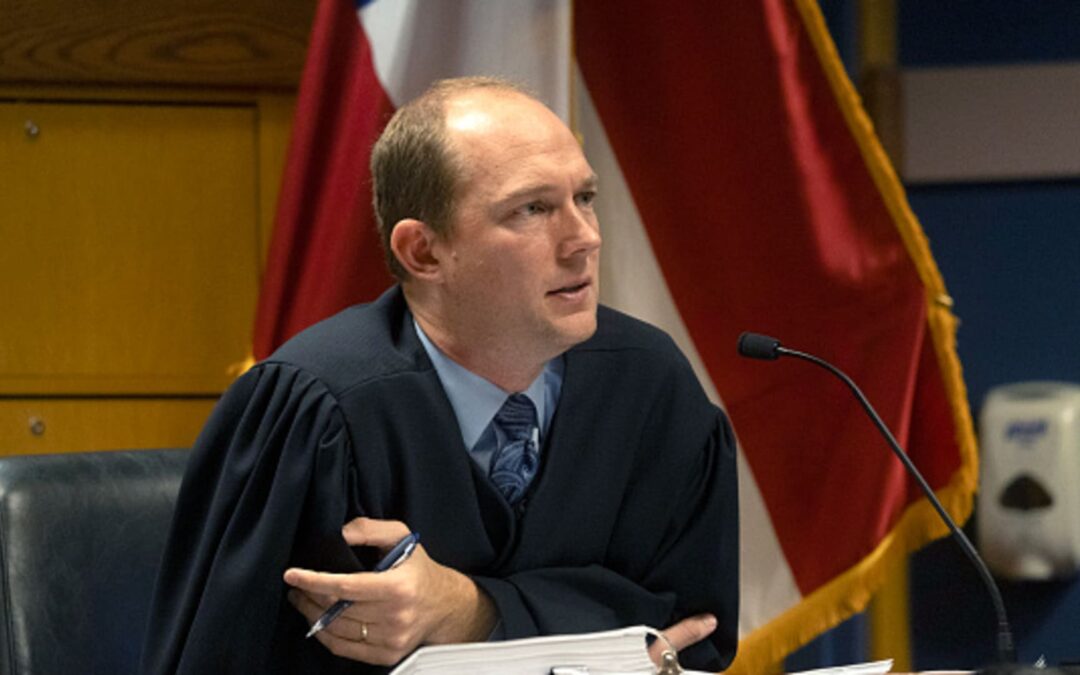Judge Scott McAfee presides over a hearing for Harrison Floyd at the Fulton County Courthouse, November 3, 2023 in Atlanta, Georgia.
Christian Monterrosa | Getty Images
A Georgia judge said Wednesday he will issue a protective order barring the public release of sensitive evidence exchanged between prosecutors and lawyers representing former President Donald Trump and his co-defendants in their election interference criminal cases in that state.
“Until we decide what’s going to be relevant and admissible, this case should be tried and not in the court of public opinion,” Fulton County Superior Court Judge Scott McAfee said at a hearing on the proposed order.
The order was sought by prosecutors, and agreed to by most of the defense teams on Wednesday, after the leak this week to media outlets of videos containing confidential interviews that four co-defendants, among them attorneys Jenna Ellis, Sidney Powell and Kenneth Chesebro, gave prosecutors as part of their agreements to plead guilty.
At Wednesday’s hearing, attorney Jonathan Miller, who is representing defendant Misty Hampton, told McAfee that he gave the videos to “one media outlet.” He did not say which one.
Miller said the public had the right to know what the four co-defendants had told the Fulton County District Attorney’s Office, arguing that the statements they made “help my client.”
ABC News had first reported statements that Ellis and Powell made in their so-called proffer videos, while The Washington Post first reported statements made by Chesbro and bail bondsman Scott Hall in their own proffer sessions.
Fulton County Sheriff’s Office
Nathan Wade, a prosecutor, told McAfee the District Attorney’s office will designate what evidence is considered “sensitive,” and therefore subject to the protective order, “and what’s not.”
Sensitive information would include any proffer videos, along with confidential business records, personal identifying information, and “additional things that I think just by their very nature makes sense to be confidential,” Wade said.
Tom Clyde, a lawyer for a group of media companies, argued against the protective order, saying it was not justified by Georgia law.
Clyde said that a key issue in the case — the legitimacy of the 2020 election — is “extremely significant in public importance” and that certain evidence related to it should not be subject to an order automatically barring its release to the public.
Trump and the other defendants were charged with crimes related to their efforts to reverse his electoral loss to President Joe Biden in Georgia.








